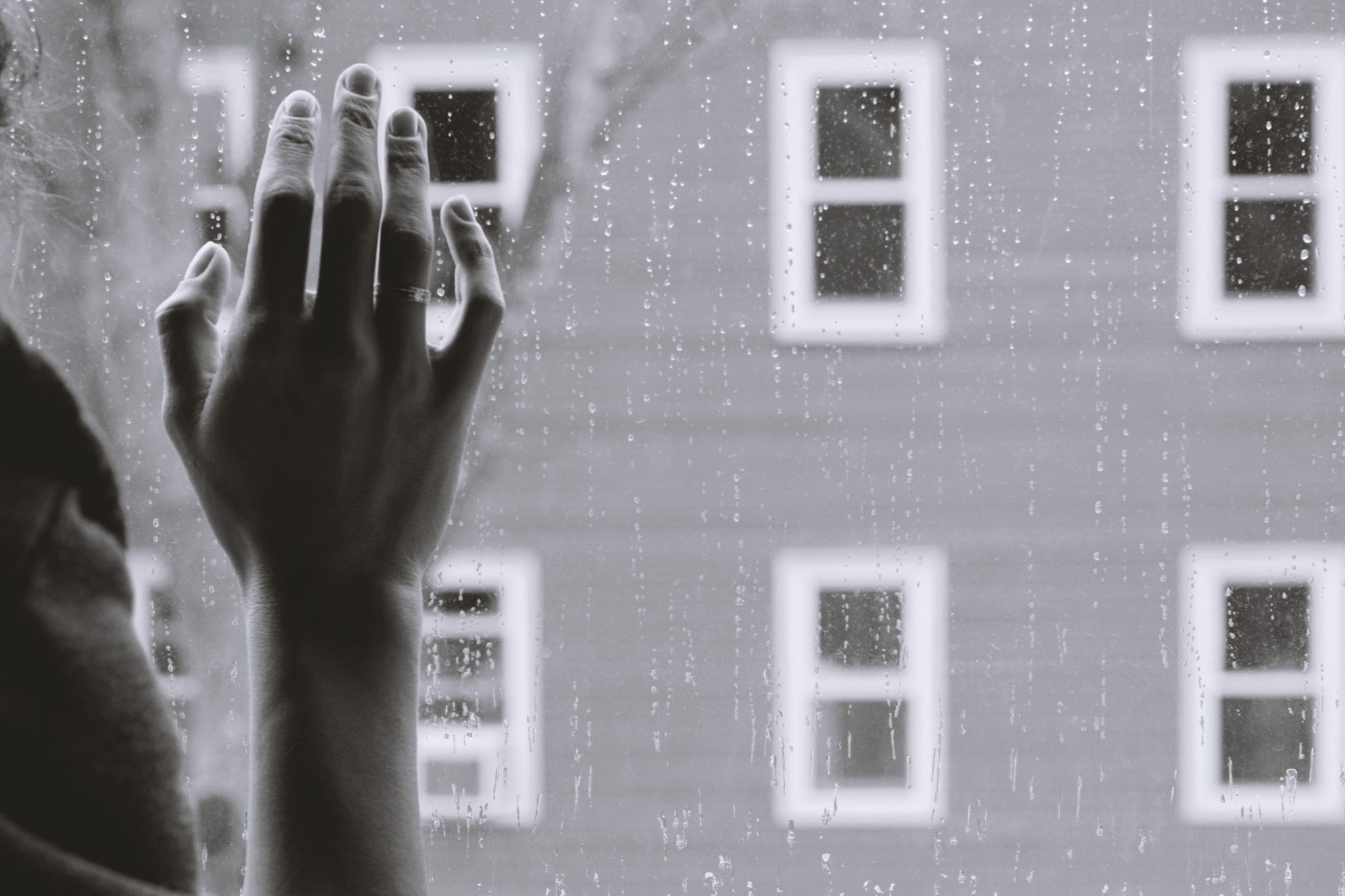
It might feel like grief and loneliness go hand in hand. It’s not uncommon to isolate ourselves after the death of a loved one. Often, the abundance of overwhelming emotions makes it difficult to be with other people. We might feel anger, despair, or sadness. We might also feel the inability to trust others or the world in general. In short, it might feel as if the world is a completely different, foreign place—and it might feel easier to stay home, alone, as we grieve.
But that comfort that we feel when we shut ourselves away from others can and often does turn to loneliness. But sometimes we’re so accustomed to being alone that we assume that loneliness is just part of our lives now. Or we might think that we’re not fit for company, because we are grieving, or because we’re experiencing those visceral emotions that come with grief, like anger. Or perhaps we cry and we assume that will make others uncomfortable. There are countless reasons why we might think loneliness is inevitable after the death of a loved one.
Grief and Loneliness
It is common to feel lonely after a loved one passes away. There’s an emptiness in a grieving person’s life where their loved one once was. There might be routines that you shared that you now do solo, or there might be conversations you felt you could only have with that one beloved. And now that they’re gone, you’re left alone.
It’s also common to feel lonely in the sense that you’re experiencing this by yourself. Of course, others may have loved the person who has passed on; but the way you are experiencing grief is unique to you. That alone can cause you to feel lonely, and like no one understands how you feel.
All of this is very normal. But knowing that it’s normal doesn’t diminish how isolating it can feel, or how detrimental it can be to you as you move through this period of grief.

How to Deal With Grief and Loneliness
Because everyone’s circumstances are unique, there is no one-size-fits-all way to deal with grief and loneliness. We can acknowledge and honor that while also acknowledging that there are some universal things we can do that will offer some comfort.
One way to handle grief and loneliness is to talk about it. Saying the words to another person can start a conversation that helps you realize that while you are grieving in your own unique way, you are not doing so alone. You can talk to a friend or family member, a therapist, a counselor, or your doctor.
Another way to handle these complex emotions is to seek out others who are also grieving. Support groups can help. So can groups that aren’t specifically grief-focused, but filled with people at about the same point in life as you, like a hobby group. Think about a knitting group if you’re crafty, a book club if you love to read. It might not feel as obvious a place to talk about your grief, but engaging in activities that you enjoy with people you can chat with can help remind you that you are not alone in the world. And as those relationships progress, and if you’re willing to ask others about their lives and open up about yours, you’ll likely find others who also want to talk about their grief, or are happy to be there for you as you talk about yours.
Quotes About Grief and Loneliness
“Absence is a house so vast that inside you will pass through its walls and hang pictures on the air.” ~Pablo Neruda“Grieving doesn’t make you imperfect. It makes you human.” ~ Sarah Dessen
“Never. We never lose our loved ones. They accompany us; they don’t disappear from our lives. We are merely in different rooms.” ~ Paulo Coelho“The song is ended but the melody lingers on.” ~ Irving Berlin
“God gave us memory so that we might have roses in December.” ~ J.M. Barrie
“You will lose someone you can’t live without, and your heart will be badly broken, and the bad news is that you never completely get over the loss of your beloved. But this is also the good news. They live forever in your broken heart that doesn’t seal back up. And you come through. It’s like having a broken leg that never heals perfectly—that still hurts when the weather gets cold, but you learn to dance with the limp.” ~ Anne Lamott
“Come back. Even as a shadow, even as a dream.” ~ Euripides
Resources for Dealing With Grief and Loneliness
There are resources available for you, no matter where you are in your grief journey. Start with those close to home: your place of worship, if you practice; your therapist or family physician; your best friend.
If those don’t feel quite right, you might look for options through your employer. Many offer EAP programs with free therapy sessions, online counseling, or meetings with specialists. Your family physician can likely share the number of a local support group, or you can search for one here.
There are also online resources if that feels like a better option for you. Here’s a list to help you get started:
The Compassionate Friends – This resource helps those grieving the loss of a child
AARP Grief and Loss Resources – This resource focuses on the grief of losing an aging loved one
National Widower’s Organization – This resource is devoted to widowers
American Foundation for Suicide Prevention – This resource offers support for those who have lost a loved one to suicide
Griefnet.org – This resource is specifically for adults
Hellogrief.org – This resource is for both children and adults
And we are always here for you, too. Remember that you can reach out at any time.



Recent Comments